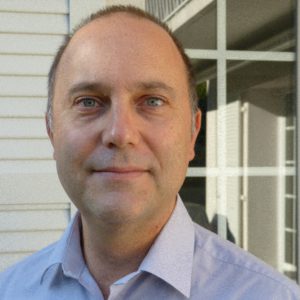Multiscale characterization of the biomechanical properties of the bone-implant
Live Webinar: 29 November 2017, 3-4pm CET
Webinar objectives:
- Learn about the cutting-edge science and career paths of the most successful young scientists in Europe
- Ask questions to better develop your own career plan
- Learn from the questions of peers
- Benefit from the knowledge of speakers on how to apply for ERC grants
Format:
- 25 min science presentation
- 10 min presentation of the career path
- 25 min Q&A
About the speaker:
Dr. Guillaume Haiat studied Mechanics and Acoustics in the Ecole Polytechnique, Palaiseau, France and then followed a Master of Physical Acoustics in 1999. After an experience in the industry in Saint-Gobain Recherche, he did his PhD study in the French Atomic Energy commission in CEA Saclay where he worked in the domain of nondestructive testing of reactor pressure vessels. After defending his PhD thesis in 2004, he turned into biomechanical engineering. He started developing noninvasive methods using quantitative ultrasound to characterize bone quality during his post-doc in Paris. He became an assistant Professor in 2005 and then a CNRS researcher in 2007. Since then, he has been studying bone biomechanics, focusing in particular on the bone-implant interface. He obtained different regional, national and European funding that allowed him to develop disruptive medical devices, used to investigate the stability of different implants used in the clinics. The originality of his work is to couple advanced modeling and simulation with concrete applications. In 2015, he has been awarded an ERC Conslidator grant called BoneImplant. He is part of different editorial board such as Medical Engineering and Physics, Ultrasound in Medicine and Biology and Journal of the Acoustical society of America. He has also organized different sessions in major conferences in his field.

Abstract
Implants are often employed in orthopaedic and dental surgeries. However, risks of failure, which are difficult to anticipate, are still experienced and may have dramatic consequences. Failures are due to degraded bone remodeling at the bone-implant interface, a multiscale phenomenon of an interdisciplinary nature which remains poorly understood. The objective of BoneImplant is to provide a better understanding of the multiscale and multitime mechanisms at work at the bone-implant interface. To do so, BoneImplant aims at studying the evolution of the biomechanical properties of bone tissue around an implant during the remodeling process. A methodology involving combined in vivo, in vitro and in silico approaches is proposed.
New modeling approaches will be developed in close synergy with the experiments. Molecular dynamic computations will be used to understand fluid flow in nanoscopic cavities, a phenomenon determining bone healing process. Generalized continuum theories will be necessary to model bone tissue due to the important strain field around implants. Isogeometric mortar formulation will allow to simulate the bone-implant interface in a stable and efficient manner.
In vivo experiments realized under standardized conditions will be realized on the basis of feasibility studies. A multimodality and multi-physical experimental approach will be carried out to assess the biomechanical properties of newly formed bone tissue as a function of the implant environment. The experimental approach aims at estimating the effective adhesion energy and the potentiality of quantitative ultrasound imaging to assess different biomechanical properties of the interface.
Results will be used to design effective loading clinical procedures of implants and to optimize implant conception, leading to the development of therapeutic and diagnostic techniques. The development of quantitative ultrasonic techniques to monitor implant stability has a potential for industrial transfer.
Top 5 publications
- Haïat G., Barthel E. “An approximate model for the adhesive contact of rough viscoelastic surfaces”, Langmuir. 23(23) (2007) pp 11643-50.
- Haïat G., Padilla F., Peyrin F., Laugier P., “Variation of Ultrasonic Parameters With Microstructure and Material Properties of Trabecular Bone: A 3D Model Simulation.”, J Bone Miner Res. 22(5) (2007), pp 665-74.
- Mathieu, V., Vayron, R., Barthel, E., Dalmas, D., Soffer, J.E., Anagnostou, F., and Haïat, G., “Mode III cleavage of a coin-shaped titanium implant in bone: effect of friction and crack propagation”, J Mech Behav Biomed Mater 8 (2012) pp 194-203.
- Haiat, G., Wang, H.L. and Brunski, J.B., “Effects of biomechanical properties of the bone-implant interface on dental implant stability: from in silico approaches to the patient’s mouth”, Annu Rev Biomed Eng. 11(16) (2014) pp. 187-213.
- Michel, A., Bosc, R., Vayron, R. and Haïat, G., “Assessing the acetabular cup implant primary stability by impact analysis: a cadaveric study.” PLOS One 11(11) (2016) pp. e0166778.